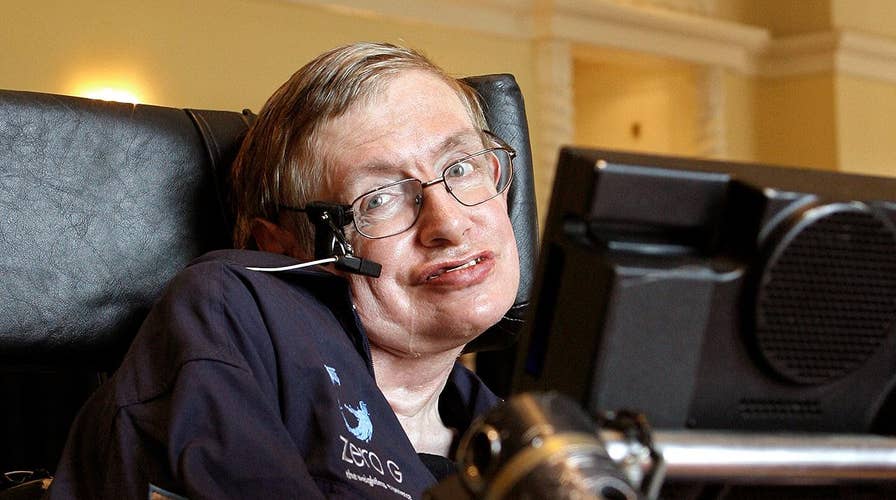Ever wondered how some of the most brilliant and accomplished individuals face life's most daunting challenges? Amyotrophic Lateral Sclerosis (ALS), a devastating neurodegenerative disease, has touched the lives of many prominent figures, turning their stories into beacons of courage, resilience, and advocacy.
ALS, often referred to as Lou Gehrig's disease after the iconic baseball player whose diagnosis brought the illness into the public eye, is a progressive condition that attacks motor neurons, impacting voluntary movements and essential bodily functions. While there is no cure, the stories of those who have battled ALS demonstrate the extraordinary capacity of the human spirit to find meaning and purpose even in the face of immense adversity. These individuals, ranging from world-renowned scientists to beloved actors and athletes, have used their platforms to raise awareness, inspire hope, and contribute to vital research efforts.
| Category | Information |
|---|---|
| Full Name | Stephen William Hawking |
| Date of Birth | January 8, 1942 |
| Place of Birth | Oxford, Oxfordshire, England |
| Date of Death | March 14, 2018 |
| Cause of Death | Complications related to Amyotrophic Lateral Sclerosis (ALS) |
| Nationality | British |
| Education | St Albans School, University College, Oxford (BA), Trinity Hall, Cambridge (PhD) |
| Occupation | Theoretical Physicist, Cosmologist, Author |
| Known For | Work on black holes, general relativity, and quantum gravity; author of "A Brief History of Time" |
| ALS Diagnosis | Early 1960s |
| Significant Achievements | FRS (Fellow of the Royal Society), Lucasian Professor of Mathematics at the University of Cambridge |
| Advocacy & Awareness | Raised significant awareness for ALS through his public life and lectures |
| Personal Life | Married twice, father of three children |
| Website | Stephen Hawking Official Website |
Among the most celebrated figures is Stephen Hawking, the brilliant British physicist whose groundbreaking work revolutionized our understanding of the universe. Diagnosed with ALS in his early twenties while at Oxford University, Hawking defied medical expectations, living with the disease for over five decades. His intellectual contributions, including his work on black holes and his best-selling book "A Brief History of Time," cemented his legacy as one of the greatest minds of the 20th and 21st centuries. Hawking's enduring presence in the public eye also played a crucial role in raising global awareness about ALS, inspiring countless individuals with his unwavering determination and optimistic outlook.
- Inside Amy Schumer Where To Stream All Seasons Episodes
- Lil Waynes Nfl Obsession Packers Football More
Lou Gehrig, the "Iron Horse" of the New York Yankees, was another prominent figure whose battle with ALS brought the disease to national attention. Gehrig's diagnosis in 1939 cut short his remarkable baseball career, forcing him to retire at the age of 36. His farewell speech at Yankee Stadium, in which he declared himself "the luckiest man on the face of the earth," remains one of the most poignant moments in sports history. The disease, which progressively robbed him of his physical abilities, eventually claimed his life two years later. Today, ALS is often referred to as Lou Gehrig's disease in his honor, a testament to the impact his story had on shaping public understanding of the condition.
Beyond these iconic figures, numerous other celebrities and public figures have faced ALS with courage and grace. Actor David Niven, known for his roles in classic films such as "Around the World in 80 Days" and "The Pink Panther," began experiencing symptoms of ALS in the late 1970s and was officially diagnosed in 1980. Despite the challenges posed by the disease, Niven continued to make public appearances, maintaining his characteristic wit and charm until his death in 1983.
More recently, actor Aaron Lazar, known for his extensive Broadway career, has openly shared his journey with ALS, raising awareness and advocating for increased research funding. Lazar's willingness to speak candidly about his experiences has helped to humanize the disease, providing a platform for others to share their own stories and connect with a supportive community.
- Jordyn Woods Style Evolution From Nyfw To Fur Coats Beyond
- Free People Search Genealogy Find Your Family History Now
ALS is a complex and multifaceted disease that affects individuals differently. While most people who develop ALS are between the ages of 40 and 70, cases have been reported in individuals in their twenties and thirties. The disease is also slightly more common in men than in women, although the incidence becomes more equal with increasing age. The exact cause of ALS remains unknown, but researchers believe that a combination of genetic and environmental factors may play a role.
Diagnosis of ALS can be challenging, as the symptoms often mimic those of other neurological disorders. The diagnostic process typically involves a thorough neurological examination, as well as a series of tests to rule out other possible causes. It is often described as a "diagnosis of exclusion," meaning that doctors must eliminate other conditions before arriving at an ALS diagnosis.
Despite the lack of a cure, there are treatments available that can help to manage the symptoms of ALS and improve quality of life. These treatments may include medications to slow the progression of the disease, as well as therapies to address specific symptoms such as muscle weakness, stiffness, and difficulty with speech and swallowing. Assistive devices, such as wheelchairs and communication aids, can also help individuals with ALS to maintain their independence and participate in daily activities.
The stories of famous individuals who have battled ALS serve as a reminder that even in the face of the most daunting challenges, it is possible to find meaning, purpose, and connection. These individuals have used their platforms to raise awareness, inspire hope, and advocate for increased research funding, leaving a lasting legacy that will continue to impact the lives of those affected by ALS for generations to come.
Beyond the famous faces, there are countless other individuals living with ALS who find creative and meaningful ways to cope with the disease and make a difference in their communities. These unsung heroes demonstrate the remarkable resilience of the human spirit, proving that even in the face of adversity, it is possible to find joy, purpose, and connection.
The ALS community is a vibrant and supportive network of individuals, families, caregivers, and healthcare professionals who are dedicated to fighting the disease and improving the lives of those affected. Through advocacy, research, and education, the ALS community is working to create a world where ALS is no longer a death sentence, but a manageable condition that can be treated effectively.
Celebrities and public figures, such as Bryan Cranston, Courteney Cox, and Renee Zellweger, have become allies in the fight against ALS, lending their voices and platforms to raise awareness and advocate for increased support. These ALS ambassadors play a crucial role in amplifying the message and reaching a wider audience, helping to break down stigmas and promote understanding of the disease.
The fight against ALS is a marathon, not a sprint. There is still much work to be done to understand the causes of the disease, develop effective treatments, and ultimately find a cure. However, the progress that has been made in recent years is encouraging, and the dedication of the ALS community is unwavering. With continued support and collaboration, it is possible to envision a future where ALS is no longer a devastating and incurable disease.
Historical figures, such as Hermann of Reichenau, an 11th-century monk, are believed to have suffered from ALS, suggesting that the disease has been present for centuries. While diagnostic methods were limited in the past, historical accounts provide valuable insights into the progression and impact of ALS on individuals and communities.
Even Chairman Mao Zedong was reported to have experienced symptoms consistent with ALS, highlighting the indiscriminate nature of the disease. ALS does not discriminate based on socioeconomic status, race, or ethnicity; it can affect anyone, anywhere.
The list of famous people who have died from amyotrophic lateral sclerosis is a somber reminder of the devastating impact of the disease. This list includes actors, musicians, athletes, and other public figures who have left an indelible mark on society. Their stories serve as a call to action, urging us to continue the fight against ALS and work towards a future where no one has to suffer from this debilitating condition.
Unfortunately many famous people's lives have been cut short because of amyotrophic lateral sclerosis, including actors, musicians and athletes, their legacies remain. Their contributions to their respective fields, and their courage in the face of adversity, will continue to inspire and motivate others to strive for excellence and make a difference in the world.
The average age of diagnosis for ALS is 55, but cases have been reported in individuals as young as their twenties and thirties. Early-onset ALS can be particularly challenging, as it can disrupt career plans, family life, and other long-term goals. However, even with an early diagnosis, it is possible to live a full and meaningful life with ALS, thanks to advancements in treatment and assistive technology.
The key to living well with ALS is to find a passion and figure out how to pursue it. Many individuals with ALS find rewarding endeavors that help them to cope with the disease and make a positive impact on others. These endeavors may include writing, painting, music, advocacy, or simply spending time with loved ones.
Ultimately, the stories of famous individuals who have battled ALS teach us valuable lessons about courage, resilience, and the importance of human connection. These individuals have shown us that even in the face of the most daunting challenges, it is possible to find meaning, purpose, and hope. Their legacies will continue to inspire and motivate us to work towards a future where ALS is no longer a threat to human life and well-being.
- Jessica Schneider Cnn Career Net Worth Family Life Revealed
- Disney Princess Guide Names Movies Fun Facts


